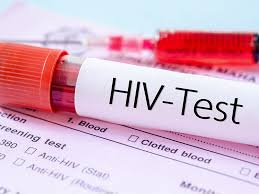Preventing Gas Leaks: Safety Tips for Homeowners
One of the most effective and convenient ways homes are powered is through natural gas. In homes, lots of gas appliances make residents’ lives easier and more comfortable. From cooking meals to providing a warm environment in the winter, they do it all.
But unfortunately, gas leaks, when they occur, pose significant threats. Such threats potentially result in fires, explosions, and carbon monoxide poisoning. That’s why it’s imperative to prevent gas leaks, rather than suffering massive damage or losses.
To reduce the risk of gas-related issues and ensure the safety of you and your family, consider taking some proactive measures. Uncertain about what steps you should take? Look nowhere else! Here’s a detailed breakdown of four gas leakage preventive tips for homeowners like you.
1. Check Appliances Periodically
Gas appliances are of great assistance. To ensure their safe operation, schedule time to inspect them all periodically. Look at a few of the most commonly utilised appliances in the home.
- stoves,
- water heaters, and
- furnaces.
During the inspection process, look for any signs of wear or malfunction, such as rusty connections or frayed hoses. Do it yourself if you can. However, it’s strongly advisable to schedule professional maintenance at least twice a year.
Prioritise seeking help from an expert and trained technician who can perform detailed checks and make repairs or replacements, if needed.
2. Be Aware of What Indicates Gas Leakage
As a homeowner, it’s essential to be aware of the common signs of gas leaks, one of which is an unmistakable smell reminiscent of rotten eggs. The actual cause behind this smell is an odorant added to natural gas.
Furthermore, never take hissing or whistling sounds lightly. They often come from gas lines. Additionally, consider the dead vegetation surrounding outdoor pipes as an indicator. An unexpected and unreasonable increase in your gas bill is another significant sign of continuous gas leakage.
If you notice any of these signs of a gas leak, evacuate your home immediately and call emergency services. The immediate moves you make, the safer you and your loved ones will be.
3. Ensure Your Home Remains Ventilated Properly
Without ventilation, the risk of gas accumulation in your home is higher. Therefore, be proactive and ensure that all exhaust fans and vents are functioning properly and free from obstructions.
Make it a habit to open windows throughout the day to let in fresh air. Not just that, fresh air continues to circulate, especially when using a gas-powered appliance.
In case your home lacks natural airflow, it’s wise to install a mechanical ventilation system. This will ensure a steady exchange of air, thereby improving your indoor air quality.
4. Invest in and Install Carbon Monoxide Detectors
Carbon monoxide (CO) is a colourless, odourless gas that is usually emitted from inefficiently maintained gas appliances. When protecting your family, consider investing in carbon monoxide detectors.
Then, install them – whether by yourself or through a professional – on each floor of your home, especially near sleeping areas. Once installed, test the detectors monthly and replace the batteries at least once a year.
Moreover, consider investing in smart detectors that send alerts to your smartphone in the event of any gas leakage or threat associated with it. These solutions will provide an additional layer of safety and protection, giving you ultimate peace of mind.







